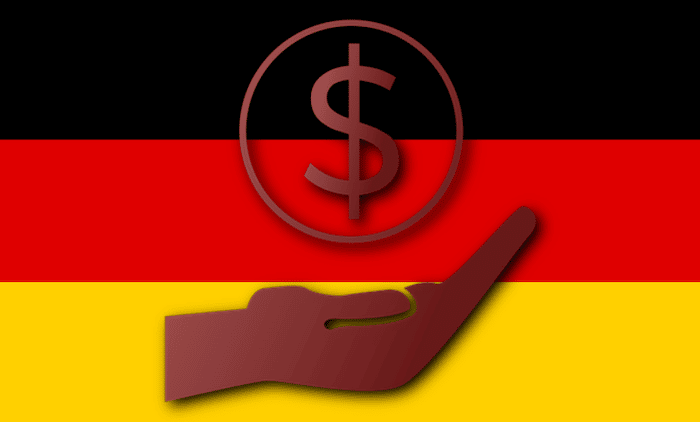EU accession: The costs of joining Ukraine are completely overestimated
[ad_1]
Thu Nguyen and Johannes Lindner from the Jacques Delors Institute, a Berlin-based think tank specializing in European issues, are convinced that the costs of Ukraine joining the EU are greatly overestimated. In Brussels on Thursday and Friday, EU heads of state and government will discuss the start of accession negotiations.
At the beginning of November, the European Commission recommended the start of EU accession negotiations with Ukraine and Moldova. The EU heads of state and government should now follow this recommendation.
At least since the Russian war of aggression on Ukraine, enlargement has been primarily a question of security. The EU must stabilize its immediate neighborhood, prevent Russia’s influence in the region and defend the rule of law and democracy. An expansion, including into the countries of the Western Balkans, has become essential for geopolitical reasons.
However, there is a lot of uncertainty about the costs of joining, especially with regard to Ukraine. Ukraine is a poor and largely destroyed country that is at war. It is the most populous country among the accession candidates – apart from Turkey, with which negotiations have been suspended – and has an agricultural sector that, in terms of used agricultural area, was larger in 2021 than that of Germany and Poland combined.
But the fear that the country would receive excessive amounts of agricultural subsidies after joining the EU and that all other member states would pay in significantly more but receive less is unfounded.
Costs are a matter of negotiation
The costs of joining Ukraine are ultimately a political question. As with national budgets, the size and composition of the EU budget are not fixed in advance. Rather, they are renegotiated politically with every EU budget. Experience has shown that the negotiations on the EU’s so-called multiannual financial framework (MFF) are primarily characterized by path dependencies and national interests. This is no different in budget negotiations in the context of enlargement: the interests of both the old and the new member states must be taken into account. But in the past, the bargaining power was clearly in favor of the former than the EU members. In the event of Ukraine joining, the EU states would only pay significantly more into the EU budget if they themselves decided to do so.
Impacts on the EU budget would be manageable
And yet the costs can still be estimated in scenarios. They show that the financial impact of Ukraine’s accession for the EU under current budget planning would be lower than generally assumed. According to our calculations, using the data and rules for 2021, the annual additional spending for the EU would amount to 13.2 billion euros. That would be 7.7 percent of the annual EU budget. This is a far cry from those often quoted 26.6 billion euros, which presented an internal EU study. If one also takes into account the national contribution that Ukraine would pay into the budget as a member state, the country would receive a net 11.4 billion. Even if current member states’ contributions were increased to offset this amount, no current member state would go from being a net recipient to a net contributor. This is also because the MFF has safety mechanisms to mitigate excessive fluctuations in the amount of funding that individual member states receive. These include upper limits on how much a member state can receive based on gross domestic product, but also limits on how much it can be reduced compared to the previous funding period.
It is also a fact that reconstruction and military support for Ukraine will be expensive. It is estimated that aid from public and private funds could increase over the next ten years 383 billion euros
amount. The EU states and EU institutions of Ukraine have already done so between January 2022 and July 2023 132 billion euros
promised state support in the form of cash and benefits in kind. These expenses apply regardless of whether Ukraine is an EU member or not.
Joining is not a sure-fire success
The accession of a large and poor country like Ukraine is not a sure-fire success. And of course it will cost money. But the EU not only can afford these costs – it actually has to. In doing so, it must not neglect the other major challenges of today: the negotiations on the next EU budget must not get bogged down in disputes about losers and winners. Europe must also become more capable of acting in areas such as climate and energy, security and defense and digital. Many things cannot be solved nationally alone, but require European solutions. To achieve this, the EU needs more money and a fundamental reform of its spending policy.
Thu Nguyen and Johannes Lindner from the Jacques Delors Institute, a Berlin-based think tank specializing in European issues, are convinced that the costs of Ukraine joining the EU are greatly overestimated. In Brussels on Thursday and Friday, EU heads of state and government will discuss the start of accession negotiations.
At the beginning of November, the European Commission recommended the start of EU accession negotiations with Ukraine and Moldova. The EU heads of state and government should now follow this recommendation.
[ad_2]
Source link



